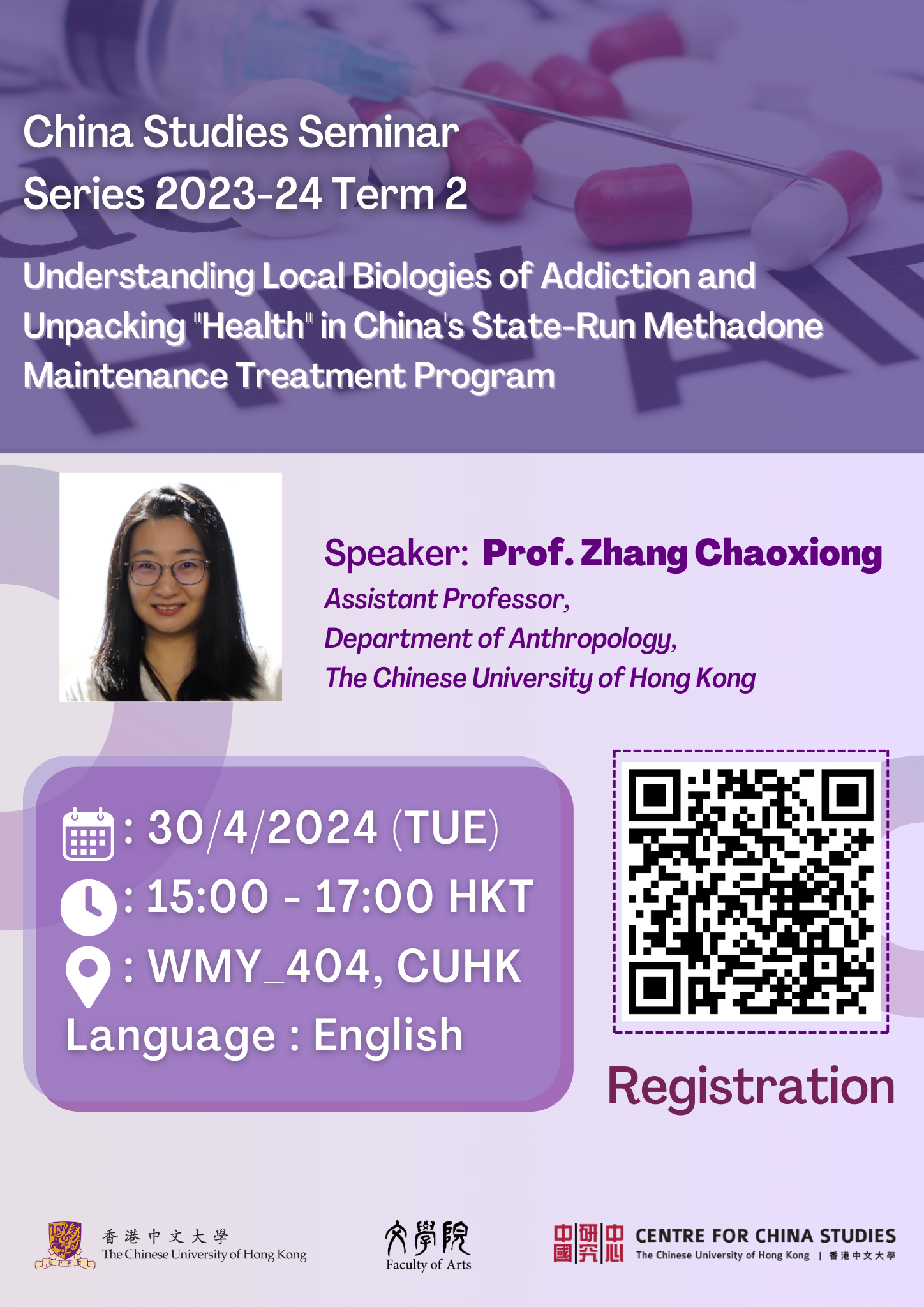[Understanding Local Biologies of Addiction and Unpacking “Health” in China’s State-Run Methadone Maintenance Treatment Program]
𝐒𝐩𝐞𝐚𝐤𝐞𝐫: Prof. Zhang Chaoxiong (Assistant Professor, Department of Anthropology, The Chinese University of Hong Kong)
𝐃𝐚𝐭𝐞: April 30, 2024 (Tuesday)
𝐓𝐢𝐦𝐞: 15:00 – 17: 00 PM (HKT)
𝐕𝐞𝐧𝐮𝐞: Wu Ho Man Yuen Building Room 404 (WMY_404), The Chinese University of Hong Kong (Direction Map WMY)
Conducted in English. All are welcome.
Registration Link:
https://cloud.itsc.cuhk.edu.hk/webform/view.php?id=13683604
Abstract:
In response to the HIV/AIDS and drug epidemic in China, the state-run Methadone Maintenance Treatment (MMT) program provides long-term to life-long replacement/maintenance therapy for drug users. The MMT program posits that methadone, a synthetic opioid, is a healthier alternative with fewer side effects compared to the highly addictive and destructive heroin. However, my ethnographic fieldwork conducted in the Guizhou and Yunnan provinces of Southwest China shows that users have diverse and contradictory bodily experiences and contested narratives regarding the impacts of these substances on their bodies and health. By adopting “local biologies” as the analytical framework, this study explores the sociopolitical processes through which embodied differences are created. It also reveals how drug users navigate their “unhealthy” experiences to redefine their relationships with different substances, to strive for moral legitimacy, and ultimately to concretize their often abstract and invisible lives. This study sheds light on how health is understood and experienced among a highly stigmatized and socially excluded population.
Biography:
Chaoxiong Zhang is a cultural anthropologist and an Assistant Professor in the Department of Anthropology at the Chinese University of Hong Kong. Her research investigates the politics and ethics of drug addiction and treatment in southwest China and examines how socially and morally marginalized Chinese drug users invent legitimate social relationships during their everyday treatment encounters.
𝐄𝐧𝐪𝐮𝐢𝐫𝐲: jefferytse@cuhk.edu.hk
